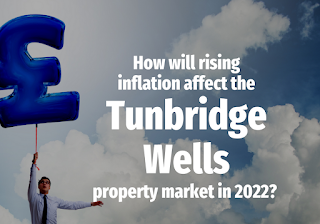• 1,105 properties have sold in the Royal Tunbridge Wells area in the last 12 months.
• It only takes 63 days to sell a Royal Tunbridge Wells home, so why does it take 112 days from the sold board going up to the buyer getting the keys?
• With a shortage of solicitors and a sub-standard conveyancing system, this article discusses what Royal Tunbridge Wells house sellers (and buyers) can do to speed up the house buying process.
Nationally, the average length of time it takes from agreeing the sale of a property to the keys being handed over is 111 days (down from 117 days last year), and in Royal Tunbridge Wells we come in at 112 days – pretty much on par with that national average.
So why does it take 16 weeks, when all that is required is the lawyers to look at some paperwork and get a mortgage? Also, what can Royal Tunbridge Wells homebuyers and sellers do to speed this up?
The legal process to buy and sell a UK property is called conveyancing. The conveyancing system itself hasn’t really changed in hundreds of years. After the housing market was reopened after the first lockdown in the spring of 2020, the property market returned with a bang, helped on with the stamp duty holiday.
In 2021, the number of properties selling in Royal Tunbridge Wells in some months went up massively, e.g., by 96% June 2021 and by 65% in March 2021. Many conveyancers and solicitors had to sort the legal paperwork out for upwards of 120 to 150 properties each at any one time.
This glut of sold properties caused by the pandemic that needed legal work to be sorted exacerbated a problem already present in the conveyancing industry.
For years conveyancers have complained of overwork and underpay. Conveyancing is seen as the Cinderella of the legal profession. This workload was the straw that broke the camel’s back, making many conveyancers leave the profession and go into better paid legal work like corporate work.
Also, the legal process of conveyancing has built-in inefficiencies, and the conveyancing profession has been relatively slow to innovate. However, there are some excellent tech solutions that are being slowly rolled out across the industry to make the process more efficient and effective.
What can Royal Tunbridge Wells home buyers and sellers do to speed up their property sale?
If you are buying or selling your Royal Tunbridge Wells property as we speak, you won’t be able to wait for the conveyancing profession to be revamped, yet you can be as pre-emptive as possible to get your Royal Tunbridge Wells house sale through earlier.
In a nutshell, ensure you have all the paperwork sorted on your Royal Tunbridge Wells home before you put your home on the market. Next, get the ball rolling on your mortgage. If you receive some paperwork, read it, check it, sign it and send it back in a day, do not leave it a week; finally, always communicate frequently with your estate agent and conveyancer.
When you instruct a solicitor, most will request money to start the ball rolling for searches and disbursements. They won’t lift a finger until that is paid.
You will have to prove who you are in the conveyancing process, so your conveyancer will ask you to show them proof of ID and address. If you are buying, they will need to prove you have the funds/deposit to buy the home (and if your deposit is coming from family/friends, then they are required to write a letter to that effect).
How can the house buying and selling process be improved?
A couple of years ago, the Government set up the Home Buying and Selling Group to find the answer to this problem. Chaired by the well-known property guru Kate Faulkner, it is looking at an amalgamated Seller’s Information Pack (SIPs) and an IT-based single platform to share and communicate that SIP between buyers, sellers, their conveyancers, the estate agent, mortgage providers and brokers and finally surveyors.
The advantage of the SIP is that it can be created before the buyer has been found, meaning property buyers would be more knowledgeable when making an offer. Also, once the sale has been agreed upon, the SIP could be sent straightaway electronically to the buyers’ legal team (from the seller’s legal team) to start the procedure of asking for searches and raising inquiries.
The bottom line is the conveyancing process is not fit for purpose in the 21st century and change is on the horizon.
So, before the SIP becomes mandatory, there are things everyone can do to ensure they get the home of their dreams quicker.
At my agency, I recommend the seller, us as the agent and the conveyancer start to liaise with each other to get the key information on the property being sold as quickly as possible. Then once a buyer is found, I believe it is vital we, as the agent, regularly communicate with all the stakeholders in the chain to ensure everyone is playing their part to expedite the sale.
In the future, utilising technology and every agent/conveyancer preparing information upfront with the SIP will drastically reduce the time it takes between agreeing a sale and the keys/monies handed over.
The conveyancing process will have to change to meet the needs of the 21st century, but how long that will take is the big question.
If you would like to chat with me about how we do things differently to ensure your property not only gets the best price and how we do all we can, as agents, to expedite a smooth sale for your Royal Tunbridge Wells property, do not hesitate to pick up the phone to me or drop me a line at the office.



.png)